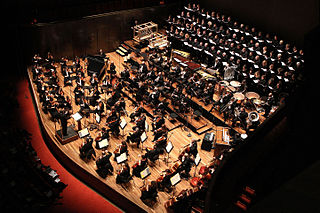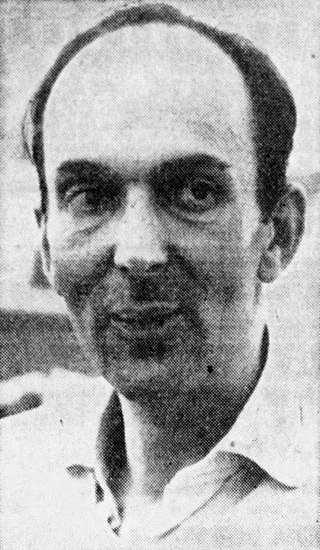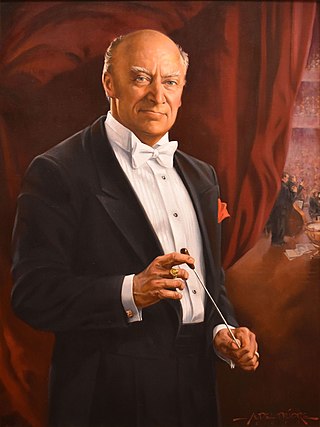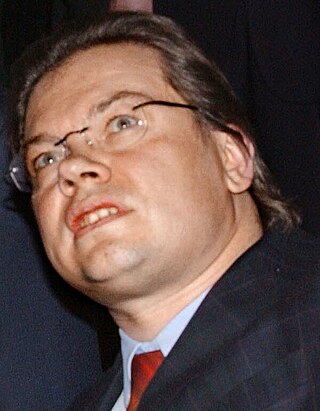Related Research Articles

Edo de Waart is a Dutch retired conductor. He is Music Director Laureate of the Milwaukee Symphony Orchestra. De Waart is the former music director of the New Zealand Symphony Orchestra (2016-2019), chief conductor of the Royal Flemish Philharmonic (2011-2016) and Artistic Partner with the St. Paul Chamber Orchestra (2010-2014).

Neeme Järvi is an Estonian American conductor.

Alexander Tansman was a Polish composer, pianist and conductor who became a naturalized French citizen in 1938. One of the earliest representatives of neoclassicism, associated with École de Paris, Tansman was a globally recognized and celebrated composer.
Sir Bernard Thomas Heinze, AC, FRCM was an Australian conductor, academic, and Director of the New South Wales State Conservatorium of Music.
Marcello Viotti was a Swiss classical music conductor, best known for opera.

The Milwaukee Symphony Orchestra (MSO) is an American symphony orchestra based in Milwaukee, Wisconsin. The orchestra performs primarily at the Bradley Symphony Center in Allen-Bradley Hall. The orchestra also serves as the orchestra for Florentine Opera productions.

The Melbourne Symphony Orchestra (MSO) is an Australian orchestra based in Melbourne. The MSO is resident at Hamer Hall. The MSO has its own choir, the MSO Chorus, following integration with the Melbourne Chorale in 2008.
Paul Daniel is an English conductor.

Sir Andrew Frank Davis was an English conductor. He was the long-time chief conductor of the Toronto Symphony Orchestra, the BBC Symphony Orchestra and the Melbourne Symphony Orchestra. He was music director at the Glyndebourne Festival from 1988 to 2000, and especially known for conducting the traditional Last Night of The Proms, including Last Night speeches. He was music director and principal conductor of the Lyric Opera of Chicago from 2000 to the 2020/21 season.

Igor Borisovich Markevitch was a Ukrainian composer and conductor who studied and worked in Paris and became a naturalized Italian and French citizen in 1947 and 1982 respectively. He was commissioned in 1929 for a piano concerto by impresario Serge Diaghilev of the Ballet Russe de Monte Carlo.

Hiroyuki Iwaki AO was a Japanese conductor and percussionist.
Wilma Smith is a Fijian-born violinist. She was born in Suva, Fiji and raised in Auckland, New Zealand. She has been concertmaster of the New Zealand Symphony Orchestra, and co-concertmaster of the Melbourne Symphony Orchestra in Australia from 2003-2014. She plays a 1761 Guadagnini violin.

Markus Stenz is a German conductor. He studied at the Hochschule für Musik Köln with Volker Wangenhein and at Tanglewood with Leonard Bernstein and Seiji Ozawa.
Martyn Charles Brabbins is a British conductor.
Tadaaki Otaka, CBE is a Japanese conductor.
Mark Wigglesworth is a British conductor.

Edvard Tchivzhel is a Russian-born conductor and music director of the Greenville Symphony Orchestra, Greenville, South Carolina.
Lothar Koenigs is a German conductor.

Alexander Alexandrovich Vedernikov was a Russian conductor. He held major posts with the Bolshoi Theatre the Odense Symphony Orchestra, the Royal Danish Opera, and the Mikhailovsky Theatre.
Benjamin Northey is an Australian conductor, musician and arranger. He has been Chief Conductor of the Christchurch Symphony Orchestra in New Zealand since 2015. He is also the Principal Conductor and Artistic Advisor - Learning and Engagement of the Melbourne Symphony Orchestra having previously been Principal Conductor in Residence from 2020-2023. He was previously the Associate Conductor of the Melbourne Symphony Orchestra from 2010-2019. He is also the Artistic Director Designate of the Australian Conducting Academy, a national training program for Australian and New Zealand Conductors which he will commence in 2025.
References
- ↑ Robin Usher (2005-02-24). "Caetani shows his hand". The Age. Retrieved 2008-11-07.
- ↑ Charlotte Higgins (2005-02-18). "Italian working in Australia to lead English National Opera". The Guardian. Retrieved 2009-05-08.
- ↑ Jack Malvern (2005-12-29). "ENO chief sacked before he starts". The Times. Archived from the original on May 23, 2011. Retrieved 2009-05-08.
- ↑ Charlotte Higgins (2005-12-29). "ENO changes tune on music director". The Guardian. Retrieved 2009-05-08.
- ↑ Tim Ashley (2006-03-04). "Sir John in Love (Coliseum, London)". The Guardian. Retrieved 2009-05-08.
- ↑ "Melbourne's Chief Conductor Extends Contract" (Press release). Melbourne Symphony Orchestra. 31 March 2008. Archived from the original on 20 July 2008. Retrieved 2009-05-08.
- ↑ Robin Usher (2008-08-06). "A light in the darkness". The Age. Retrieved 2008-11-07.
- ↑ Tim Ashley (2006-04-14). "Tansman, Symphonies 4, 5 and 6 (Chandos)". The Guardian. Retrieved 2009-05-08.
- ↑ Robin Usher (2005-09-19). "MSO's man for all seasons". The Age. Retrieved 2009-05-08.
- ↑ Robin Usher (2009-10-14). "Orchestra abruptly ditches chief conductor". The Age. Melbourne. Archived from the original on 2022-07-01. Retrieved 2023-05-04.